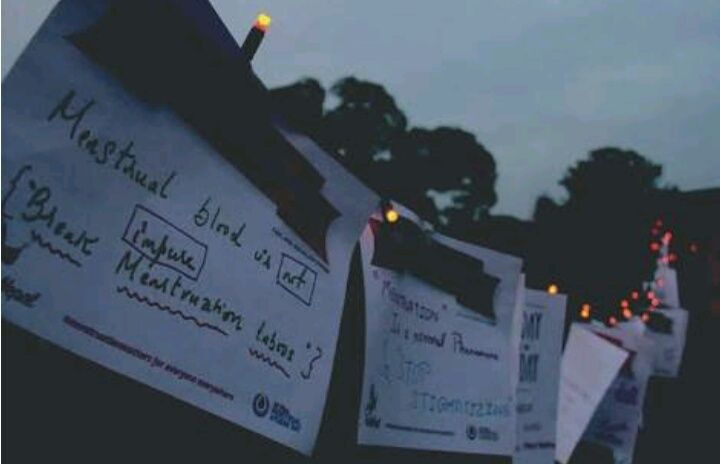Think No More Of Shame
Jun 11, 2019 • 26 views
May 28 is celebrated as World's Menstrual Hygiene Day, and with more than 400 partner-organizations it attempts to bring out awareness about menstrual hygiene. Although in recent years, there has been various efforts made by individuals and organisations to promote awareness regarding menstrual health, in 21st century India, there is still a silence around the issue of women's health. Especially around menstruation.
Since I write and mainly focus on issues, writing on this domain also popped up into my head since I've started writing. But somewhere, somehow it was stopping me. I felt ashamed. I felt embarassed to put this issue on my blog, I didn't know why. I didn't know from where this embarrassment stemmed from. So it got me. I needed to write an article on this to overcome my embarrassments. I was 12 when I got my first period. I had a talk with my mother earlier, so I knew what to expect at that moment. I still remember that I was told by my grandmother that it's a very sensitive issue and we should not discuss it with "Men." And that's exactly what has happened. That was the beginning, from hiding sanitary napkins covering it with black plastic bags as if we were taking drugs to referring to my period in code language. I believe, and I know my grandmother's myth about period is among thousands that were taught to other young girls. Fortunately, I was born and brought up by Indian parents with whom discussions on this kinda topic is not such a big deal. But unfortunately, there are other kinds too. Menstruation is still stigmatised in our society, and this stigma is rooted holding the traditional beliefs of our unwillingness to discuss it normally. Till today often we as women shy away from discussing it openly, which results in the emergence of several misconceptions hold by young girls. There are few other myths that is constantly engulfing our society mentioned below.
It was believed that women who are menstruating are impure and even cursed.
The most commonly known fact is that menstruating women are not allowed to participate in any religious ceremonies. An apt example would be Sabarimala case, when in 1991 a Kerala high-court judgement had forbade women from entering the temple. Although in 2018 September, the Indian Supreme Court ruled that all regardless of gender, including women in the menstruating age group, should be allowed to visit the temple. However, there are still few women who were not allowed.
In Afghanistan, it was believed by most women that if they bath during her days, she would be considered as infertile. In many countries, women use renewable sanitary napkins. But the downside is women are often ashamed to hang clean cloth used during menstruation outside with other laundry. They hide and wear sanitary napkins for too long leading to vaginal infection.
These are the commonly known myths, though others have simply occupied its place, considering the women as "impure", "contaminated" and what not when they menstruate. There’s also a fallacy that if a menstruating woman touches a pickle jar, it will most certainly go bad. These were all because young boys and girls are not well informed.

However, it is true that the situation is getting better these days due to the active efforts made by feminists. But the world in which we live is grasping this fallacy so tighly, that we would not be able to free ourselves from those evil clutches so easily.
Education regarding this subject matter is important but it's not the only thing that we should imply. Also, I believe that we should at least talk about it in the open. Because if we don't, we won't be able to solve any problems.
